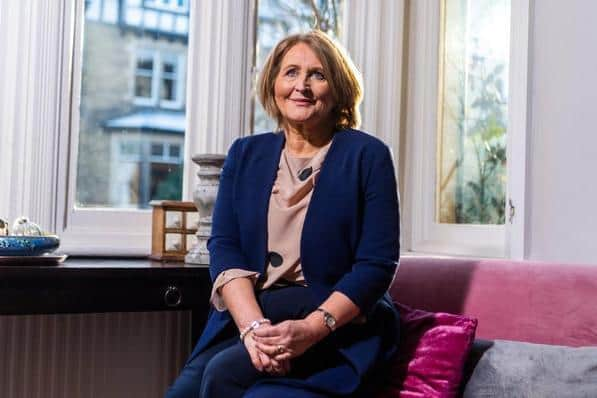Ruthless drugs gangs targeting a growing number of middle class children


It comes after the Commission on Young Lives, which she chairs, found that 10 years ago county lines drugs gangs “almost entirely involved” children who were in care or had vulnerable parents, but ruthless dealers are now looking to recruit children in more affluent areas and coerce them into selling drugs and committing violent crime.
The commission, which comprises a panel of child safeguarding experts, also heard from parents who were unable to access the support they needed, when they realised their children were being exploited and were left “feeling powerless”.
Advertisement
Hide AdAdvertisement
Hide AdMore than 12,700 children in England were involved in gangs in the year ending in March 2021.


“This is happening in areas we used to think were more well-to-do areas like Harrogate,” said Ms Longfield.
“More and more middle class families are finding burner phones or large amounts of cash in their children’s bedrooms and you can imagine their horror.
“There’s this old notion that this is only in the inner city areas or really disadvantaged areas, and of course there’s going to be more of a preponderance there, but actually this is happening all around the country.”
Advertisement
Hide AdAdvertisement
Hide AdChildren who have special educational needs or have been excluded from school are particularly vulnerable to exploitation, while black boys are disproportionately affected. A range of issues at home, such as poverty, domestic violence and drug abuse, can also leave a child at greater risk of being groomed.
When compiling its latest report, published earlier this week, the commission spoke to several concerned parents, including the mother of one boy, who became involved with a gang and taking drugs when he was in Year 8 and stabbed before he turned 15.
It also heard from the parents of another boy, who began dealing drugs at 11 and later joined a county lines gang four years later, before he was made to traffick drugs around the country.
Ms Longfield said: “These gangs are using children within their business model, because they are easier to get hold off, they’re not as likely to be seen and there’s lots of them who are desperate for some attention, belonging and validation.
Advertisement
Hide AdAdvertisement
Hide Ad“County lines gangs are in every police force area and some of the grooming now takes place online, which obviously opens it up to a whole new set of horrors.”
Ms Longfield and the commission are calling for a new system of properly-funded support to ensure social workers, schools, charities, the police and other safeguarding specialists can help families “fight back” against the criminals.
The commission said the Government should provide councils with the same level of early intervention funding as it did in 2010, roll out ‘Family Hubs’ in every disadvantaged area of the country and trial a ‘Teenager in Need programme’ which provides families with long-term intensive support.
